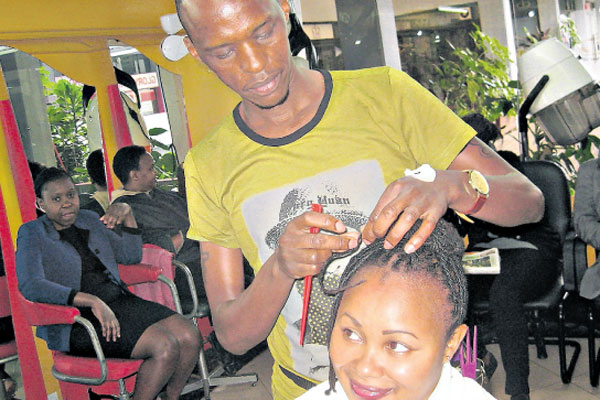The late Nick Munyao had always dreamt of owning a multi-million shilling business. However, unlike many entrepreneurs who start from scratch, Mr Munyao bet his luck on a different route.
“I wanted to buy a running business and turn it into a giant,” he says. He had been working as a salonist at Le-Chique Unisex Beauty Salon in Upper Hill, Nairobi, for four-and-a-half years when the opportunity came calling.
“Although I enjoyed my job, but I was not content with being an employee,” he says. “I admired the way my boss steered the business. I wished it was mine.”
When his employer chose to sell the salon seven years ago, Mr Munyao took a leap of faith. Unlike buyers who engage a business valuation expert, Mr Munyao relied on his own assessment of the enterprise.
“As an employee, I observed how the salon was run and the profit it made. I was confident it would grow and understood what it takes to steer it to higher success.”
Having struck a good working relationship with his boss, Mr Munyao negotiated a buyout. “The cost of the business was Sh3.5 million,” he says. “I approached my family for a loan payable in two years. They believed in me.”
On acquiring the salon, Mr Munyao took a bank loan to expand it and within two years, he had repaid his family. “Today, it is worth Sh12.5 million and has been growing at the rate of Sh1.3 million a year,” he says.
Nick died after a short illness in 2017.
However, not all aspiring business owners have a similar story to share. As Money found out, many people, end up buying white elephants.
“Buying a running business may look like an easier option than starting from scratch due to the existing exposure and customer base, but it is not so simple,” entrepreneur and business coach Robert Kiptanui says.
“Ask yourself, why is the business being sold? One could be trying to cash in on his investment and take off before it collapses,” Mr Kiptanui says.
Mr Evanson Mwambia, a secondary school teacher, has learned from the best. Over the past few years, he has been trying his luck in business.
“All my attempts have ended up hitting a wall,” he says. In 2011, Mr Mwambia pumped Sh300,000 into a taxi outfit that screeched into the graveyard.
“I was convinced to buy a car that was already operating as a taxi, unaware that it was in a poor condition. I had seen friends succeed in the taxi business and I knew that I’d be smiling all the way to the bank.”
Instead, he cursed his way to the garage. Two months later, he sold the junk at Sh250,000 and closed shop.
A year-and-a-half later, he took a Sh500,000 loan and bought a wholesale shop in Nakuru. “The stock wasn’t moving fast enough. The profits kept plummeting. I shut down after a year.”
As if that is not enough, last year, Mr Mwambia bought five running M-Pesa agencies in Nyahururu town. “I injected Sh30,000 float in each.”
However, due to dwindling returns, he had closed two of them by February. “The market is too saturated to make any meaningful profit. The commission I get is too small,” he says.
With the spectacular failure he has encountered, Mr Mwambia reluctantly admits that, maybe, he was not cut out for business.
However, according to Mr Kiptanui, Mr Mwambia has been consistently setting himself up for failure. “It would appear that he has not been getting the true picture of the businesses he acquires, which is the start of failure in the world of business,” he says.
Apparently, many buyers of running businesses embrace loss-incurring entities because they fail to interrogate the true value, existing competition, and the entity’s potential.
“A seller will never tell you that you are flushing your money down the drain,” says Mr Kiptanui, adding: “He will only tell you that you are in for mega profits and sustained growth but these should not be a big factor.”

